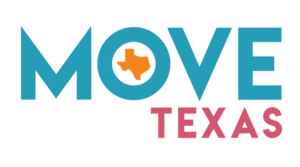With passage of Senate Bill 1, Texas is one of many states that need defenders of American democracy. We need to overcome voter suppression and promote free and fair elections in Texas.
About the Texas Voter Suppression Bill (SB1)
During September 2021, Texas Senate Bill 1 was signed law, a part of a national effort to enact more restrictive voting laws following former President Trump’s loss in the 2020 election. Trump and his allies have falsely claimed the 2020 election was stolen.
SB1 includes new ID requirements for people voting by mail and prohibits local officials from sending a vote-by-mail application to someone who hasn’t requested one. The law also creates a number of new criminal penalties for people who assist voters at the polls, or folks who assist others planning to vote by mail. And SB1 bans drive-through voting and extended voting hours.
Proponents of this bill claim the new law addresses concerns among voters about fraud even though proven cases of voter or election fraud are extremely rare in Texas or elsewhere.
What is the Impact of SB1?
SB1 requires registered voters to add either their driver’s license number or the last four digits of their social security on both the mail-in ballot and the envelope, and it has to match with what is already on their voter record on file. Many seniors, unfortunately, don’t feel comfortable following these steps. Pro-democracy advocates fear that elderly voters or those with disabilities without the means (eg. transportation assistance) to correct their ballots or vote in person will be disenfranchised.
Voting rights advocates are also concerned about a lack of awareness of the new law, potentially causing voters to unknowingly leave the identification information off their forms. SB1 could disproportionally impact certain immigrant communities with limited numbers of interpreters available or people approved to help voters in need inside the polling locations. Significant education will be required so that voters will know how to comply with the law and exercise their fundamental right.
SB1 also requires those helping voters with disabilities to take an oath promising they will only help with “reading the ballot to the voter, directing the voter to read the ballot, marking the voter’s ballot, or directing the voter to mark the ballot.” Defenders of voting rights and democracy are deeply concerned that this limits the scope of assistance for voters with disabilities by blocking anyone from helping to ensure ballots are properly received and cast. The oath, given under the penalty of perjury, essentially discourages assistance as one’s help might be misconstrued as an illegal action.
SB1 has also reduced the options for early voting which disproportionately impacts communities of color. The law bans drive-in voting, reduces early-voting hours and bans 24-hour voting centers, which were used in Harris County during the 2020 election. With traditional 9-to-5 working hours, many voters of color have relied on these limited methods of voting
What can you do to help Texas voters?
One of the most effective ways to promote democracy in any state is to support local groups pushing back on voter suppression bills, educating voters and helping them cast their ballots. To help fight against voter suppression in Texas and bring greater fairness to future elections in the state, please make a contribution to MOVE Texas.
MOVE is a nonpartisan and nonprofit organization empowering underrepresented youth communities through civic education, leadership development, and issue advocacy. MOVE Texas was started in 2013 by students at The University of Texas at San Antonio to increase participation in local elections. The organization has expanded statewide to become one of the most effective voter registration and engagement groups in the state.
MOVE Texas is currently training young people across the state of Texas on how to discuss new voting laws (including SB1) with other voters in an effort to increase preparedness.
